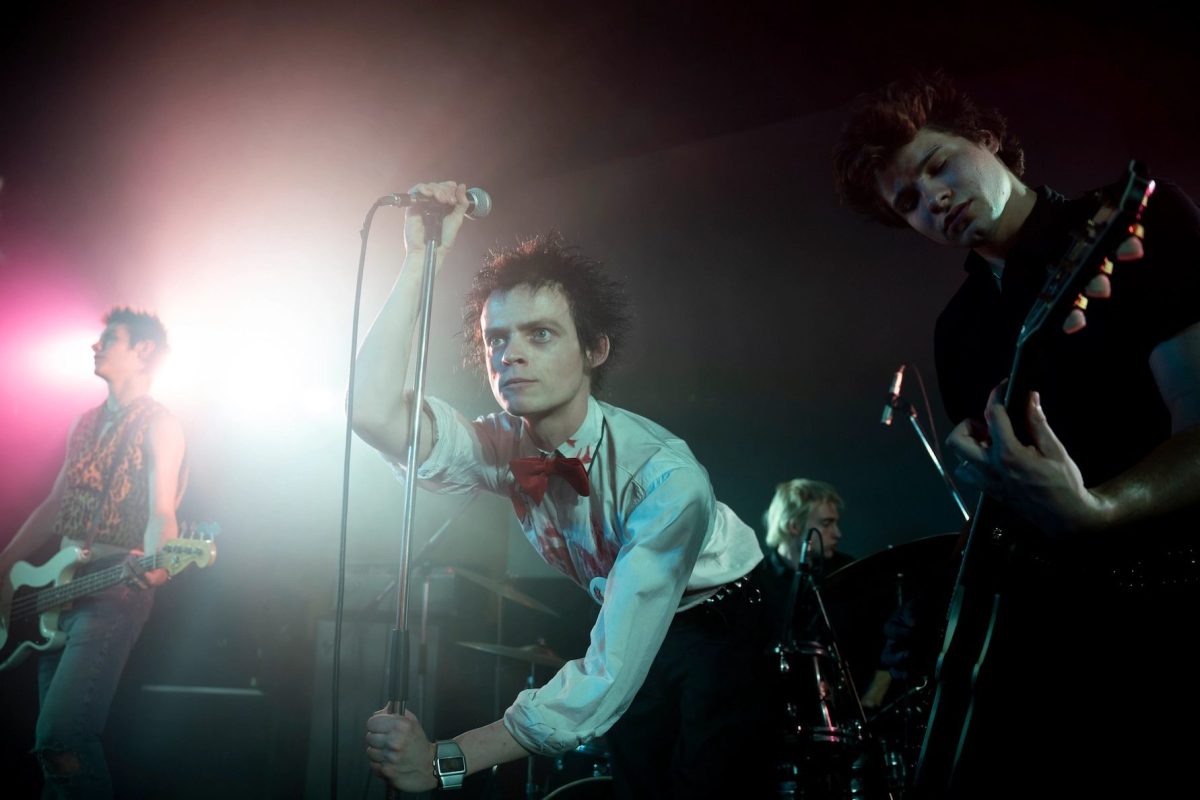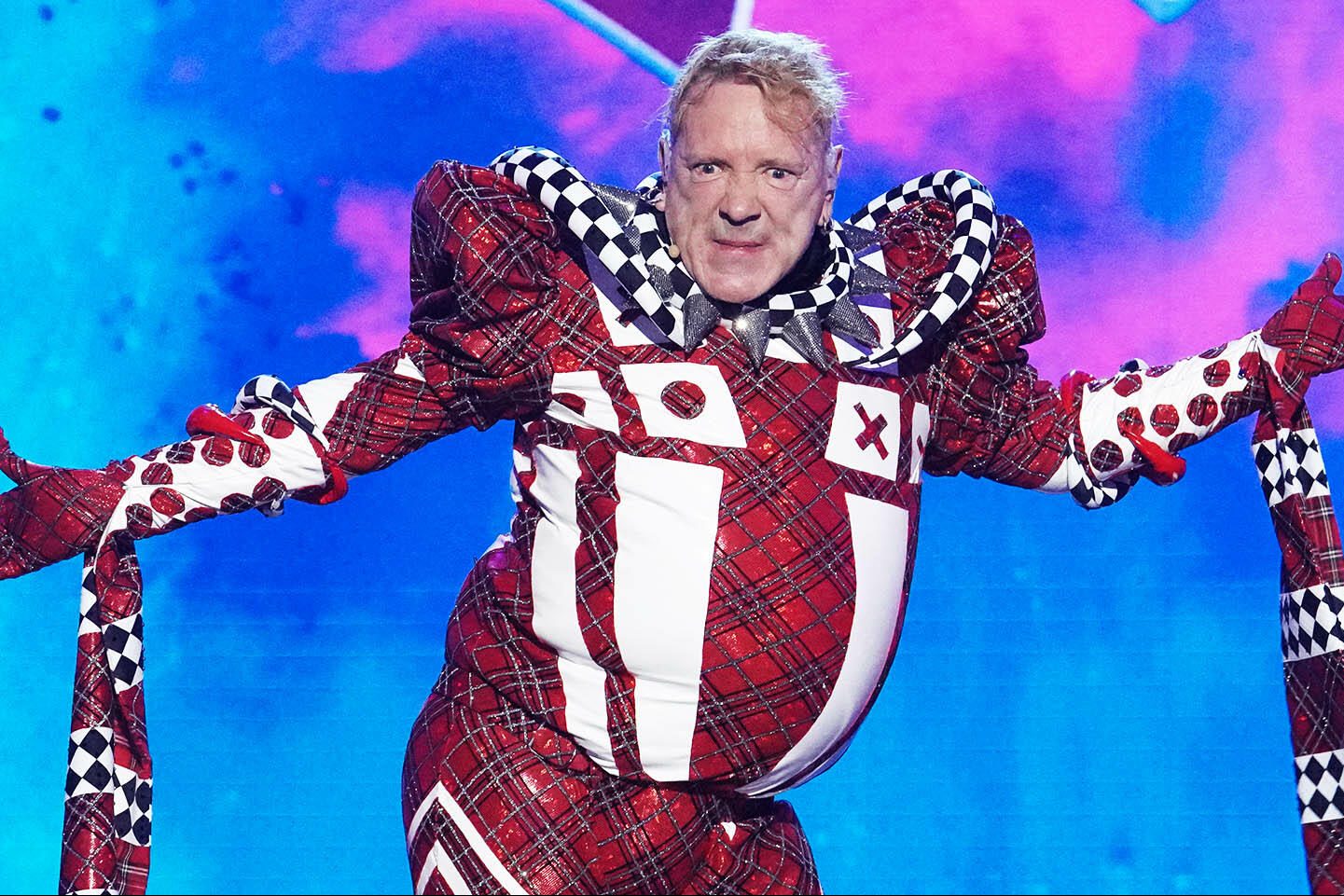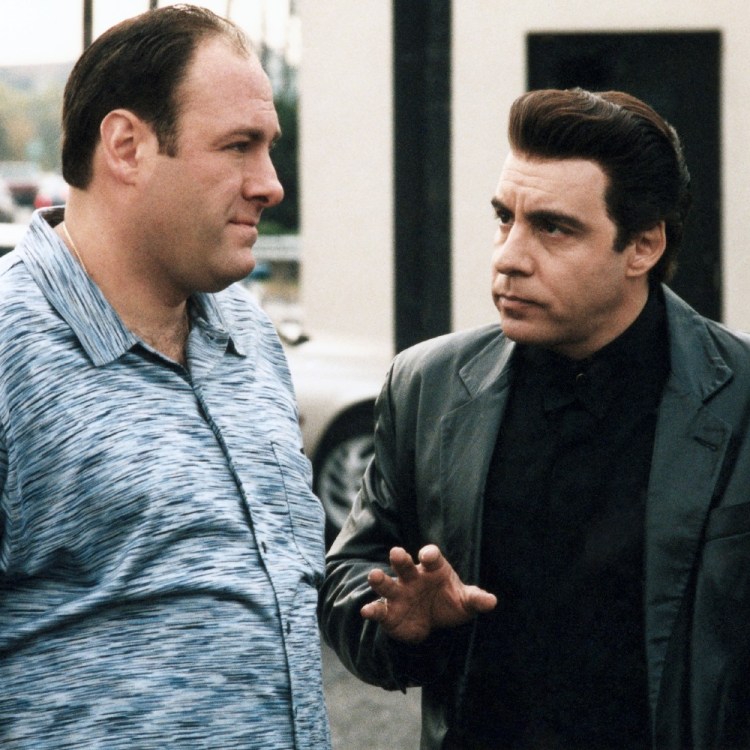If you’ve heard anything about Pistol, the six-part Sex Pistols limited series from director Danny Boyle (of Trainspotting and Slumdog Millionaire fame), it’s probably been related to the fact that Johnny Rotten wants nothing to do with it. The frontman has been particularly vocal about his displeasure with the project, accusing it of “rewriting history,” referring to it as a “middle class fantasy” and even going so far as to (unsuccessfully) sue his former bandmates in an attempt to prevent them from licensing the Sex Pistols’ music for the show.
“Disney have stolen the past and created a fairytale, which bears little resemblance to the truth. It would be funny if it wasn’t tragic,” the man known in his post-Pistol days as John Lydon wrote in a statement denouncing Boyle and the series (which actually streams on Hulu, not Disney+, on this side of the pond) on his website.
There’s always the possibility that he’s leaning so hard into publicly distancing himself from Pistol because he knows that’s what we expect of him; nostalgia and self-aggrandizing aren’t very punk, after all. But while certainly none of us can pretend to know what goes on inside the mind of Johnny Rotten, in this particular instance, we have to agree with him — Pistol feels too much like a familiar fairytale.
The Sex Pistols are obviously one of the most iconic and influential bands of all time, but so much of Pistol feels like a paint-by-numbers rock biopic that could have just as easily been about anyone else. The plot follows the classic rise-and-fall formula that we’ve seen played out in so many other movies and TV shows about famous artists, and for a band that was famously nihilistic, there’s an almost astounding number of platitudes spit out about how their music can “change the world, man.” There are, of course, many scenes where stuffy British people express horror over these disgusting lads having the gall to spit on their audience or swear on live TV, but they could just as easily be replaced by the ones who thought the Beatles’ hair was too long just a little over a decade prior, or the folks stateside who were scandalized by Elvis pelvic-thrusting. (Speaking of Elvis, Pistol shares a screenwriter with Baz Luhrmann’s terrible Elvis in Craig Pearce — perhaps that explains why they both fall victim to the same cliches.) In addition to the lame old people denouncing their work as the devil’s music and the legions of screaming young fans whose worlds are transformed by it, there’s the Svengali manager leading our heroes astray — this time, it’s Malcolm McLaren, whose over-the-top smarminess almost works if you know anything at all about the real Malcolm McLaren but still feels just a tad too absurd thanks to impossibly cheesy lines like “I don’t want to fuck you, I want you to fuck the world.” (McLaren is played by Thomas Brodie-Sangster, who does his best with the material he’s been given and will make you feel extremely old if you happen to recognize him as the precocious child who ran through the airport in Love Actually.)
But what’s most frustrating about Pistol is that it glosses over the most compelling parts of its source material and the issues raised by it — addiction; violence; what happens when art and commerce are inherently linked, as the Sex Pistols were with McLaren and partner Vivienne Westwood’s London boutique, SEX — and instead adds in storylines that feel tangentially related to the band at best. The story is told through the perspective of guitarist Steve Jones; it’s based on his book Lonely Boy: Tales of a Sex Pistol, which explains how Boyle was able to get away with depicting the band without Lydon’s consent. Unfortunately, Jones makes for a pretty dull protagonist. There are aspects of his life chronicled in his book that would have been fascinating to delve into further, like the sexual abuse he suffered as a boy at the hands of his stepfather, the sex addiction it led to in his adulthood or the fact that he was functionally illiterate until his 40s. Those are all peppered in throughout Pistol, but most are addressed in one brief scene and then ignored for the rest of the series with no resolution. Instead, we get a manufactured, multi-episode love story between Jones and a pre-Pretenders Chrissie Hynde, who worked at SEX while trying to get her own music career of the ground.
Hynde is of course a fascinating character in her own right, especially as a female rock musician coming up in a time when the genre was frustratingly dismissive of women. But she seems sandwiched in here, frequently naked in lots of gratuitous sex scenes with Jones, meant to serve as his love interest when in real life the pair maybe hooked up once or twice and then went their separate ways. “She watched it the other day, and she was surprised: She said, ‘I didn’t realize I was about this much,’” Jones recently admitted to the New York Times. “I knew Chrissie, we did hang out a bit in the early days, she wanted to be a musician, and I kind of brushed her off, so that is all true. But she was shocked when she saw it last week. But I do think it’s a good story. Even if it wasn’t as long as that, my relationship with her, I just think the way it’s been written makes it interesting. If you’re a train spotter, you’re going to hate it, because it’s not in the timeline, but whatever.” It’s completely obvious to any ’70s rock fan who the American “Chrissie” who works at SEX, takes calls from Mick Ronson and tries to get one of the Sex Pistols to marry her so she can get a work visa while constantly noodling on guitar is, but Boyle still waits five full episodes before attempting some sort of pseudo-poignant reveal, as Jones looks at her and says, “I’ll see you on stage, Chrissie Hynde.”
In fact, Boyle waits far too long for most of the reveals in Pistol. Save for one brief, wordless glimpse of him in the pilot’s final seconds, we don’t meet Johnny Rotten until episode two. Sid Vicious and Nancy Spungen and their tragic, toxic romance are relegated to the final two episodes almost as an afterthought — and because their story is told so hastily, it comes off as almost offensively cartoonish. (Spungen in particular gets painted as some sort of manipulative, out-of-control villain, when in real life she was a schizophrenic and an addict who desperately needed help, not scorn and judgement.) Perhaps not wanting to weigh in on whether Vicious actually killed Spungen in the Hotel Chelsea or not, Pistol avoids that question altogether by simply cutting to the bassist discovering her dead body the next morning. Likewise, his own death — the result of an overdose while he was out on bail after being charged with her murder — happens entirely off-camera.
Despite all its shortcomings, there are some bright spots in Pistol. Anson Boon doesn’t physically resemble Johnny Rotten much, but he turns in an incredible performance as him, nailing both his speaking and singing voices and perhaps most crucially, that bulging, defiant stare of his along with his other onstage mannerisms. When you’re dealing with a larger-than-life persona like Rotten’s, humanizing him can be tough, but Boon’s Rotten is also surprisingly three-dimensional, tender and compassionate when he wants to be. It’s a shame he’s only a minor character here.
There’s also an interesting scene that doesn’t shy away from punk’s ugly history with Nazi iconography and subsequent ties to the second-wave skinhead movement and other racist subgenres. When Rotten walks in on Westwood and her son screen-printing pink swastikas onto t-shirts, the boy regurgitates the explanation she’s clearly fed him: “Mum and Malcolm want to not only reject the values of the older generation, but also their taboos,” he says. “Everything’s anti-.” He goes on to explain that since Hitler hated gay people as well and forced them to wear pink triangles, “The Nazis would hate this swastika being pink.” “Many millions of Jews might hate a shirt with a swastika on it,” Rotten quips. Westwood insists that they don’t hate anyone — except for “racists and fascists” — and claims that by embracing the symbol of history’s most notorious fascist racist, they’re simply looking to shake everyone awake. “Do you know why nothing ever changes?” she asks Rotten. “It’s because people’s minds are too imprisoned by lies, fear and a misguided respect for the very institutions that have exploited them for centuries. I want to destroy all that so that out of the chaos, the future can emerge.”
Of course, no one ever quite is able to articulate what that future might look like, and it eventually becomes painfully obvious that when you’re anti-everything, you actually don’t have much of anything to say at all. The pink and bedazzled swastikas eventually give way to the classic red ones — on an armband worn by punk muse Jordan (played by Maisie Williams) during an early Pistols TV appearance, or on a t-shirt sported by a strung-out Vicious as he rehearses “My Way” — and if you stop and think where some of the movement’s biggest players have since wound up, it’s a little harder to buy their aesthetic as being part of some grand artistic statement rather than simply provocative for provoctive’s sake. Westwood, for example, is now hawking corset tops for upwards of $1,800. (Because nothing says “punk” quite like spending more than what most people pay for a month’s rent on a single item of clothing designed to make you look like a starving artist, right?) Rotten, meanwhile, has gone from being the working-class hero who initially expressed outrage over the swastika t-shirts to being an outspoken Trump supporter. “Your future dream is a shopping scheme” indeed.
Maybe that’s why Pistol doesn’t attempt to make any bold pronouncements about what we should take away from the Sex Pistols’ brief but impactful career. It just sort of…ends, without any sort of postscript about the subsequent careers of the surviving members or the other people who had a hand in making the band what it was. Narratively, that’s a bit frustrating, but more than anything, it serves as an awful reminder that every earth-shattering, once-in-a-generation pop cultural movement eventually fizzles out and gives way to the next. The kids who loved Elvis grow up to hate the Beatles, the Beatles fans are horrified by the punks, the punks don’t know how to wrap their minds around hip-hop, and so on. All of them were told their music could change the world, but none of them actually did — not in the sort of permanent, broad-strokes type of way that would allow for a Disney-movie ending, at least. Why, then, does Pistol insist on wasting so much time pretending otherwise?
All six episodes of Pistol are now streaming on Hulu.
This article appeared in an InsideHook newsletter. Sign up for free to get more on travel, wellness, style, drinking, and culture.
























